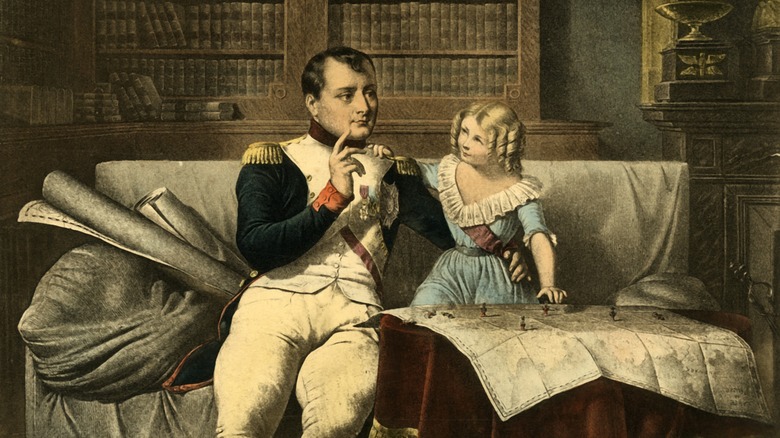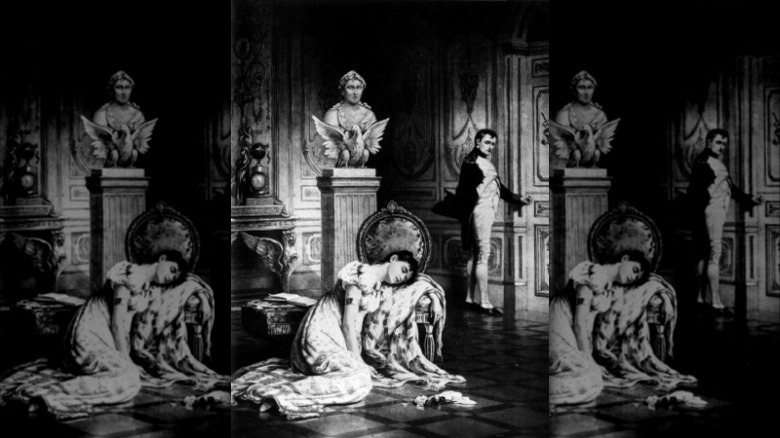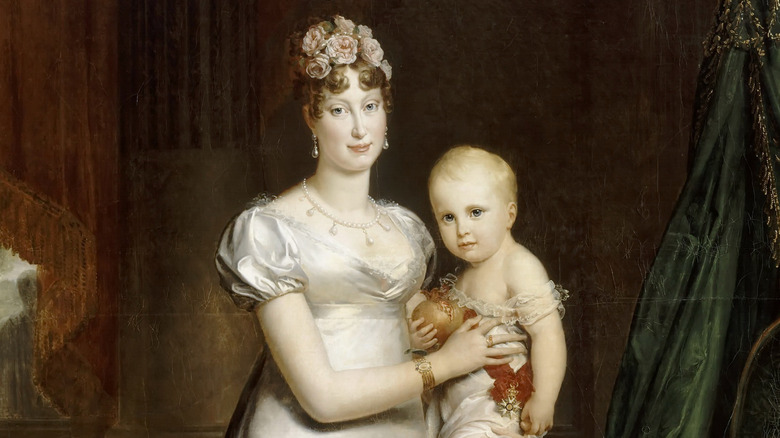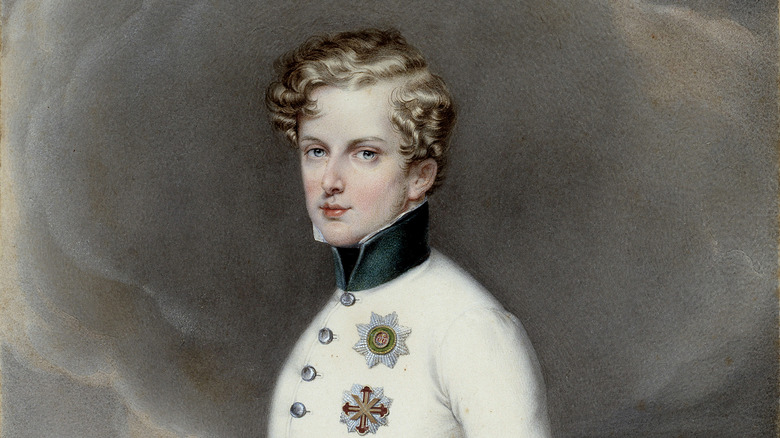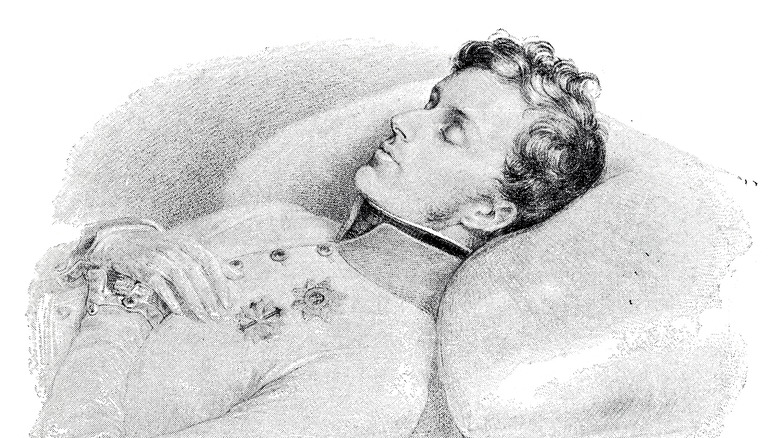What Happened To Napoleon's Son?
Napoléon Bonaparte — the military and political genius who through might and maneuvering transformed Europe and surrounding territories in the late 18th and early 19th centuries — is one of the most notable historical figures in the history of Western civilization. He rose to prominence during the French Revolution and later played a decisive role in abolishing the French monarchy and replacing it with the Republican National Convention. Amid ongoing dominance throughout Europe as leader of the French military, Napoleon eventually established the French empire, becoming Emperor Napoleon I on December 2, 1804.
As they say, with great power comes great responsibility, and throughout history supreme leaders have time and time again come to the conclusion that the greatest responsibility is to consolidate power in the form of a dynasty. Having conquered all that lay before him, childless Napoléon now turned to the issue of a successor — and proved willing to upturn his personal life to ensure it happened. But the life of his son, François Charles Joseph Bonaparte, known to Bonaparte's supporters as Napoléon II, was ultimately as troubled as it was tragically short. In fact, the child was separated from his father while still an infant and died at the age of just 21 before he had the chance to fulfill his potential or prove to the world that he could continue his father's name.
Divorcing for the dynasty
Some believe you can be either a lover or a fighter, but the truth is that Napoléon Bonaparte was both. His first marriage was to a woman named Joséphine, and she is considered by some historians to be the great love of his life.
Joséphine was the daughter of a wealthy Caribbean plantation-owning family that fell on hard times after hurricanes destroyed many of their lands. She had already been married and had two children before she began a passionate relationship with Bonaparte in 1795. He became her second husband a year later. Despite rumors that Joséphine had committed adultery — rumors that she denied — she became empress upon Bonaparte's consecration in 1804. Bonaparte had affairs of his own and even had children with his mistresses. However, he required a legitimate child to continue to establish a dynasty, and, with Joséphine apparently unable to conceive, he eventually divorced her. He took as his second wife, Empress Marie-Louise d'Autriche, whose father was Emperor Francis I of Austria and whose great aunt was Marie Antoinette.
An heir born in chaos
François Charles Joseph Bonaparte was born on March 20, 1811, in Paris as the first son of Emperor Napoléon I of France and Empress of the French Marie-Louise. As a symbol of the family's enormous power, the child was given the title of King of Rome, a diminutive of his father's title of King of Italy, much of which he had conquered in 1799.
It may appear that at this juncture Emperor Napoléon had it all. But in fact, while the emperor may have believed that he had finally secured his dynasty, things were starting to fall apart. The year after the birth, France attempted a disastrous invasion of Russia, which led to the War of the Sixth Coalition, when an alliance of European powers crushed Napoléon and forced him into exile. His abdication came in 1814, and though the fallen emperor attempted to secure the succession for his son, his vanquishers refused.
He was separated from his father and raised in Austria
With Bonaparte's empire in disarray, Marie-Louise fled France to her home country of Austria, taking her young son with her. There, the young Bonaparte became known by the German name Franz and found a new home in the court of the Austrian emperor Francis I.
Upon the defeat of Emperor Napoléon, there were calls for his son to remain in France as a symbolic leader of the resistance. While Marie-Louise rejected this idea, it is true that the child remained something of a threat in the eyes of many of Napoléon's enemies around Europe, who wondered if he might eventually return to claim the throne that he was denied. While Napoléon's supporters referred to him as Napoléon II, his connection to his father became more distant during his years in the Austrian court, where, through his mother's connections, he came to be given the title the Duke of Reichstadt.
The young Bonaparte was just 3 years old the final time he said goodbye to his father, who, after a brief resurgence known as the Hundred Days, was eventually defeated at Waterloo and forced into permanent exile on the island of Saint Helena.
The death of Napoleon II
Though Franz — the Duke of Reichstadt aka Napoléon II — was effectively sheltered from having political agency, his biographer Eduard von Wertheimer claims that the specter of his father started to grow within him as he advanced toward adulthood. Specifically, he incubated in him a burning desire to follow in his father's footsteps and join the military, displaying a love of uniforms and military drills. He soon became a sergeant in the Austrian army.
But the young Bonaparte didn't get the chance to take on the world like his father had once done. On July 22, 1832, the duke died of tuberculosis at the age of just 21. It is said that the duke himself realized how little chance he had had of making a mark on the world and reportedly observed on his death bed: "My birth and my death, that is my story."
But the untimely death of Napoléon II didn't signal the end for the Bonapartes. For there was, in fact, a Napoléon III — the nephew of Napoléon Bonaparte, who ruled as the Emperor of France from 1852-1870.
